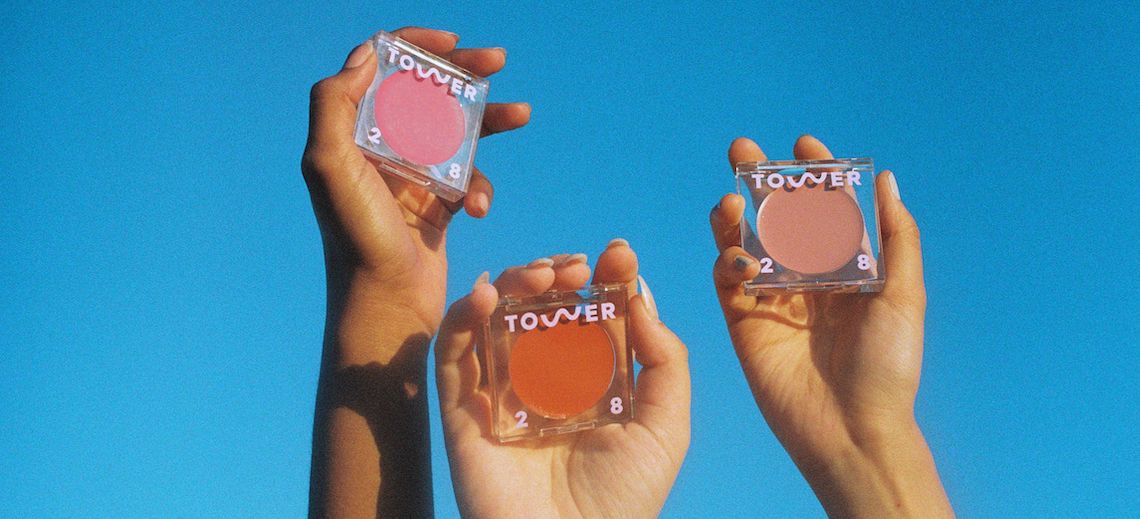Makeup brand Tower 28 is entering the third year of hosting its Clean Beauty Summer School program for BIPOC beauty founders.
Tower 28 announced its list of 10 finalists for its summer-long program on Wednesday. They are body-care brands Sincerely, Bäde, Bathe Brand and Nopalera, makeup brands Vive Cosmetics and Lamik Beauty, scalp and hair-care brands Squigs Beauty and m’Chel Haircare and skin-care brands Look Good Live Well, Ammu Beauty and Flora and Noor.
“There’s no shortage of people who want to do this from diverse backgrounds,” said Amy Liu, founder of Tower 28, of founders in the clean beauty space. She noted that the program has had 200-300 applicants each year. Despite this, the clean beauty industry is especially lagging when it comes to product inclusivity, funding and retail presence for brands owned by women of color. “Matching that with the opportunity and the access is where we as a community can really help,” said Liu.
According to data from Digital Undivided, the amount of VC funding raised by Latina and Black women founders rose from $1 billion in 2018 to $3.1 billion in 2020. But that is still a tiny fraction of the total amount of investment going to startups. According to Crunchbase, Black female founders received just 0.34% of total VC investment in the first half of 2021.
Previous participants have gone on to see growth and establish retailer partnerships. Last year’s winner, skin-care brand Pholk, is now stocked in Credo Beauty, Goop and Urban Outfitters, as well as JCPenney as part of the retailer’s Thirteen Lune partnership. In addition, 54 Thrones, which participated in 2020, has launched at Sephora, while Rosen Skincare, which participated the same year, has expanded its Target selection. Others have launched at Credo Beauty and Thirteen Lune, and more of the brands have retail partnerships in the pipeline.
This year’s winner receives a “really juicy suite of prizes,” said Liu. This includes a $10,000 grant from the New Voices Foundation, a nonprofit supporting women of color entrepreneurs. It also includes $15,000 worth of services from retail strategy consultancy Headkount, which works with brands including Rare Beauty, Summer Fridays and Moon Juice to help grow their retail businesses. In addition, $10,000 worth of legal services will be provided by beauty-focused law firm Weinberg Gonser LLP.
According to Liu, the program also aims to create a community among participants, linking them via email and through a series of online courses.
Ad position: web_incontent_pos1
“If you can get a group of people who are more similar in where they’re at, that’s the real beauty because they can help each other. They’re going through something really similar,” she said.
Finalists will also each be matched with a mentor to provide them with guidance during the program. Among the mentors are previous years’ participants, including Pholk founder Niambi Cacchioli and 54 Thrones founder Christina Tegbe, as well as others including Ami Colé founder Diarrha N’Diaye-Mbaye, Hero Cosmetics co-founder and CEO Ju Rhyu, and Ranavat founder Michelle Ranavat. Mentors are also helpful in linking participants with possible investors.
The criteria for selecting participating brands are that they must be majority BIPOC-owned, focused on clean or sustainable beauty and have three employees or fewer.
The winner will be chosen by judges at a pitch day competition at the end of the summer. Pitches will be evaluated based on the brand’s value proposition, ability to fill a need gap in the market, traction and retail readiness. The pitches will happen after finalists attend 11 classes over the course of the summer on topics including marketing, legal matters and fundraising.
A range of mentorship programs has been introduced for BIPOC-owned beauty brands, with a growing number as a result of the wave of support for Black Lives Matter in 2020. In 2020, Sephora revamped its now 7-year-old Accelerate program to focus on inclusivity, while Credo Beauty, Glossier, Shea Moisture, Glow Recipe, Peach & Lily and KNC Beauty were among the brands and retailers launching either mentorship or grant programs the same year.
Ad position: web_incontent_pos2
The benefit for participants of offering a program as a brand is that Tower 28 is “agnostic” about which retailers brands enter, while retailer-sponsored programs are focused on finding brands to stock, said Liu.
Liu’s personal experience starting a brand as a woman of color prompted her to start the program in hopes of narrowing the wide funding gap.
When she was launching her brand, “I didn’t even know for beauty that raising money was possible, and I’ve worked in the industry for a long time. You see people like Emily Weiss–there are these images of people who have raised so much money, and it feels daunting. I never thought it would happen to me,” she said. “If we can bridge the gap, the better it’ll be for the future.”




